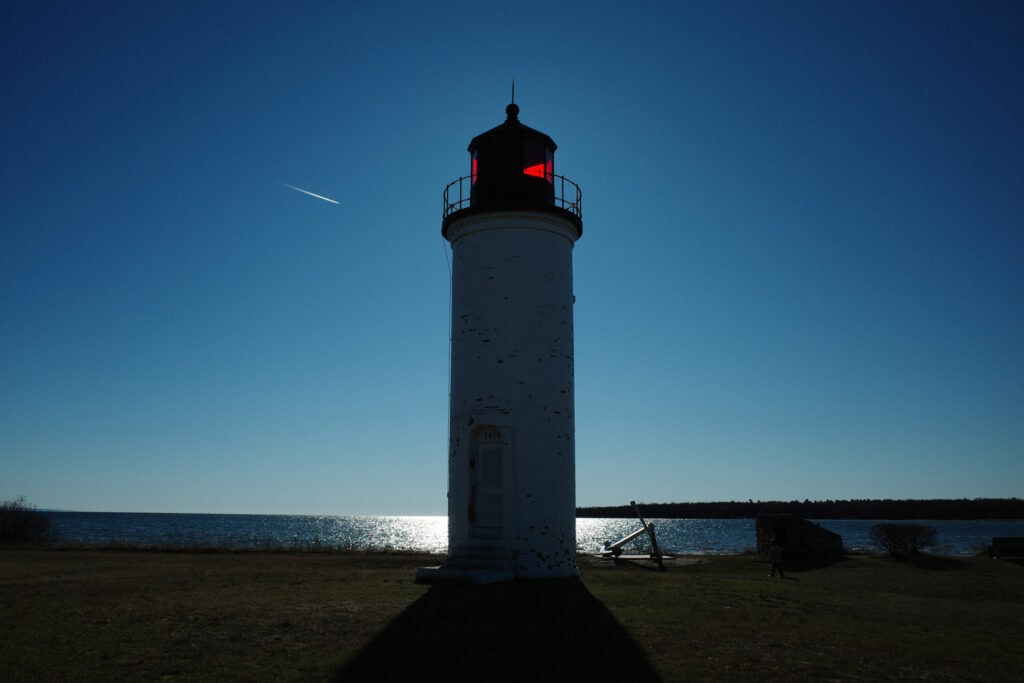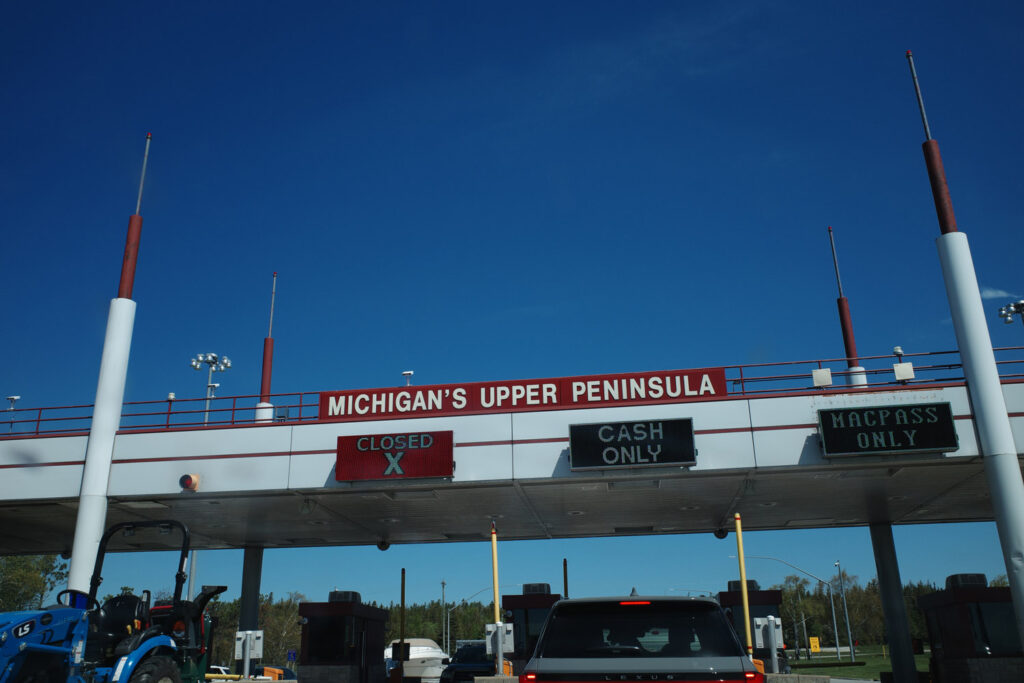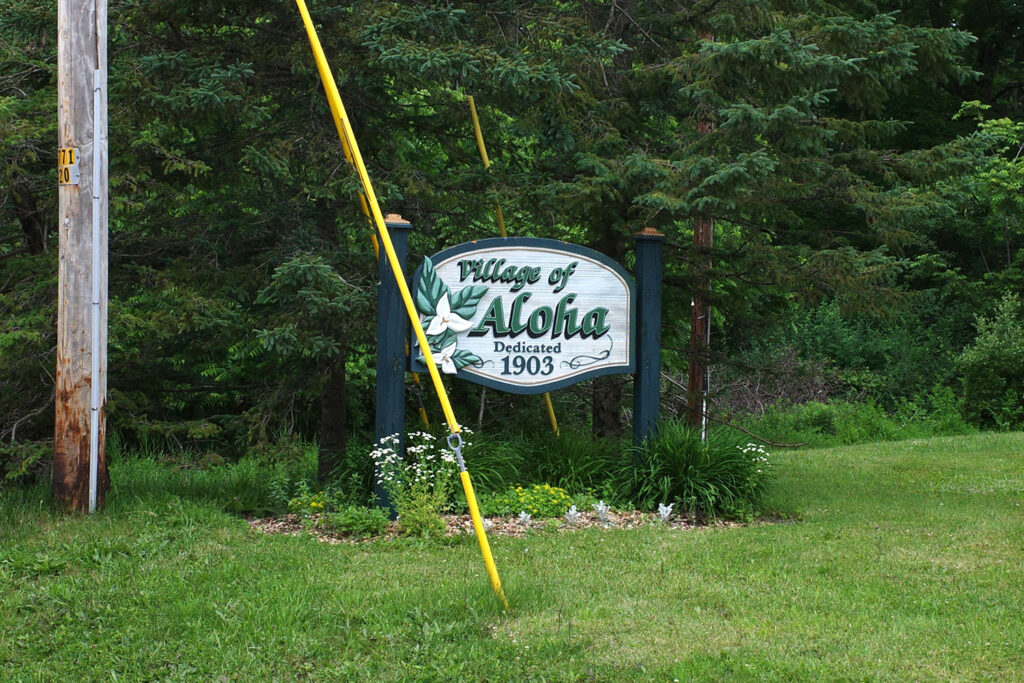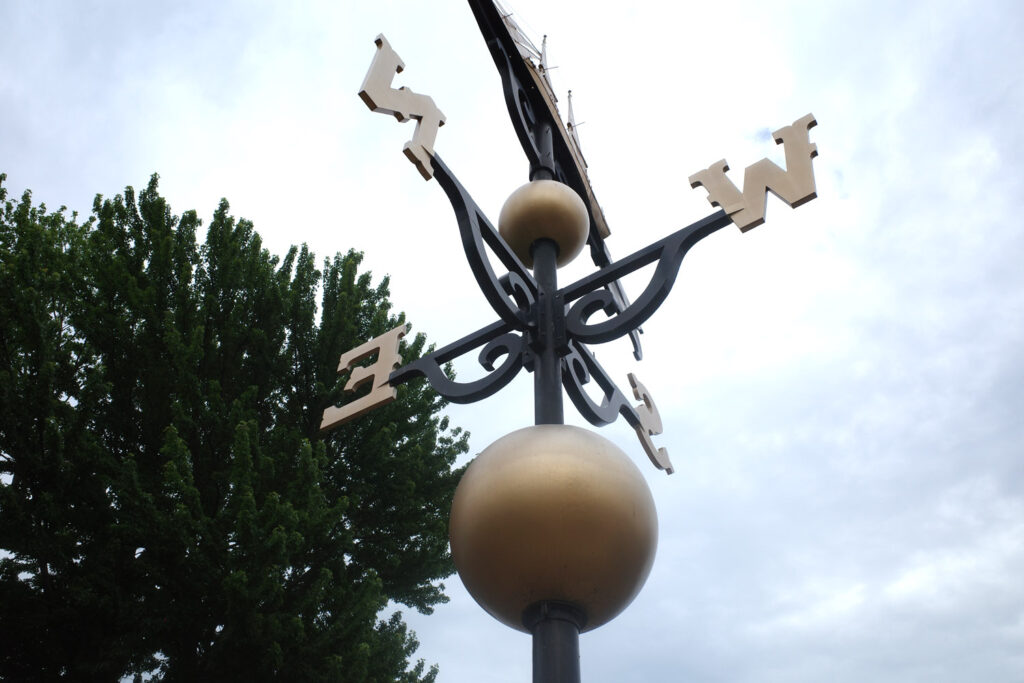St. James, Beaver Island — The boat to Beaver Island left Charlevoix a few minutes after 11 a.m. on a cold and rainy day in November. The captain had moved departure up an hour to try to get ahead of the weather. We passed through the channel and out into the open water, straight into bitter 30 mph winds.
Over the next 90 minutes the water raged around us. The bow came up, carrying our stomachs with it, and then came smacking down onto the water over and over again. Water sprayed the windows like machine gun fire. The engine drove hard through the storm. Passengers threw up in paper bags.
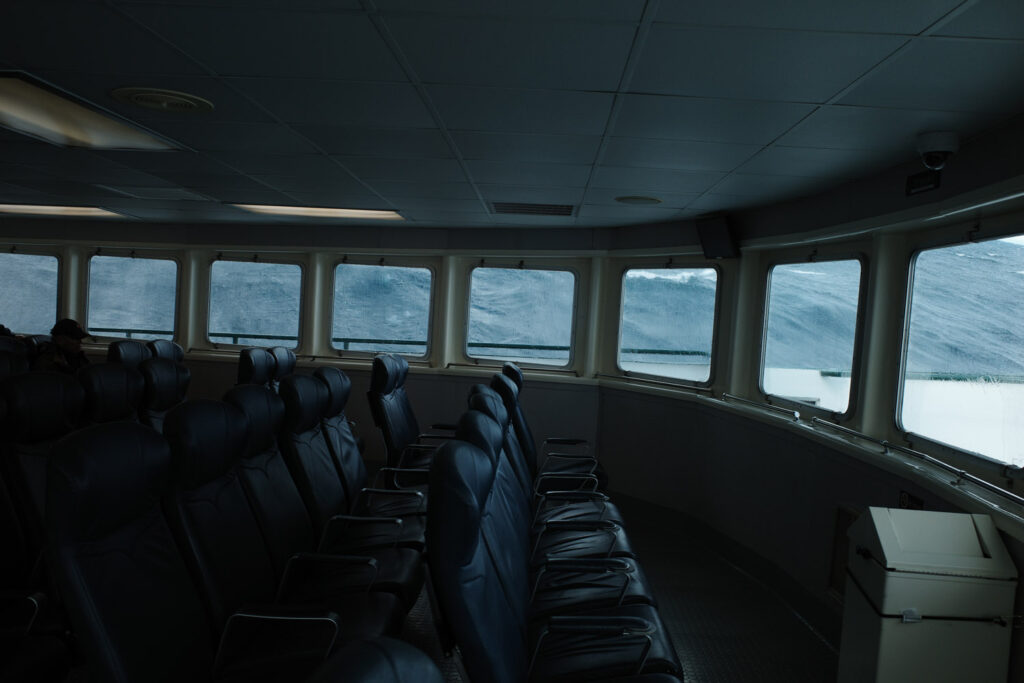
The boat rocked relentlessly from side to side. Creaking deep to the left and the right. Most of the passengers stayed plastered to their seats. No one dared walk around the cabin, unless they were holding on for dear life. As the island came into view, the storm slowly abated. A little over 2 hours after leaving Charlevoix, we came into Paradise Bay. We had arrived at Beaver Island, the mysterious place where a Mormon king named James Strang once ruled.
How did Beaver Island come to be a Mormon kingdom? And how did the kingdom come to fall? As all great stories go: it’s complicated. In 1844, Joseph Smith, the founder of Mormonism, was killed while awaiting trial in Nauvoo, Illinois. In the wake of his killing, a power vacuum opened. Strang claimed to be the rightful leader of the faith, using a forged letter purporting to come from Smith as proof that he was next in line.

Close associates of Smith had other plans. Brigham Young was eventually chosen as the new leader, and Strang was excommunicated. But Strang didn’t go quietly. He formed his own break-off sect based in Voree, Wisconsin. His sect grew, and he soon told his followers of a striking revelation: They were to establish a kingdom on Beaver Island. It was a wooded island in northern stretches of Lake Michigan, known only by a few American Indians and fishermen. It was to be Strang’s kingdom.
Over the following years, Strang brought tumult to Beaver Island. He fought bitterly with the local fisherman, was elected to the Michigan House of Representatives, clashed endlessly with the region’s gentiles (how Mormons refer to non-Mormons), was arrested more than 40 times, took four wives, and was eventually, in his final act, assassinated on the dock at Paradise Bay. His chaotic and tyrannical sensibilities finally caught up with him when Thomas Bedford and Alexander Wentworth shot him in the back on June 16, 1856. With those bullets, Strang’s reign over Beaver Island came to an end. A full, exhaustive account of Strang’s story can be found in “The Polygamist King” by John J. Miller.
Shortly after that fateful day, the Mormons of Beaver Island were driven away and dispersed. Today, what remains of Strang’s Kingdom are one abandoned cabin, the old Mormon Print Shop, and a ghostly memory. Strang’s rule still lingers, though in ways that aren’t easily extracted. The community of St. James wasn’t named after James the Apostle; it was named after James Strang. King’s Highway is one of the island’s main roads, running right into town from the south.

Today, there are just over 600 year-round residents on Beaver Island. They are hardy people. You’ve got to be if you want to live here. The ferry schedule thins out in September, and the boats start running every other day. The weather gets bad. The ride gets rough. Cancellations and delays happen. If the boat isn’t running and you need to get off the island, you take a small plane. But that doesn’t always work either. Strong winds ground the planes too.
There is one grocery store on the island: McDonough’s Market. The cashier ringing up my groceries and Dramamine told me she cancelled her son’s dental appointment on the mainland this week. Bad weather. She didn’t want to get stuck there and didn’t want to fight through the waves either. If you live on Beaver Island, you get used to this. Everything must be planned, and then it will be cancelled. This is life here.

Nature will not be denied on Beaver Island. The lake and the wind are judge and jury. You must submit to these great forces. There is no other way. If you can’t get off the island, you can’t get off the island. That sounds painfully obvious, but this isn’t something that we on the mainland understand. We don’t feel it in our bones. We can always get somewhere. We are never really trapped. But on Beaver Island, if the ferry isn’t leaving, you aren’t leaving. If a plane isn’t flying, you aren’t flying.
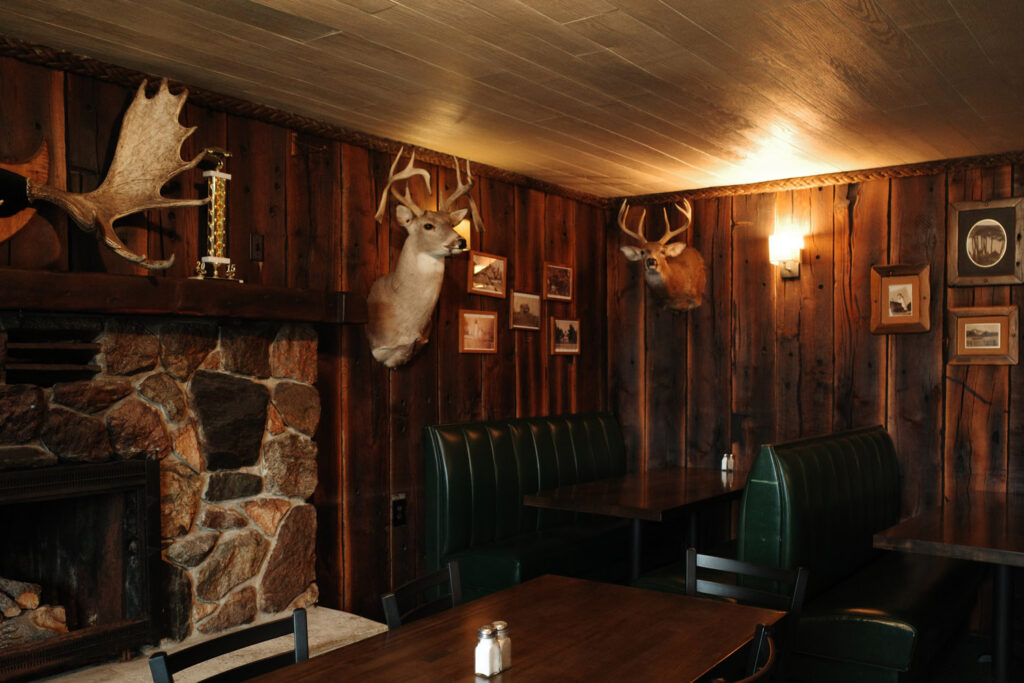
In the Shamrock Restaurant and Pub, trophy bucks hang on a dark wood wall. Hunter green booths along the walls frame a great stone fireplace. The bartender told me that she leaves the island as little as possible. She loves it here and sees no reason to leave. The longest stint she’s ever gone without leaving is one year and 11 months. There’s a public school on the island, and the graduating class is somewhere between two and seven people each year. They have a medical center here, but no hospital. For emergencies patients are air-lifted to the mainland. And if all else fails and they can’t get off the island, the Coast Guard will send someone.
Beaver Island is no tourist trap. It’s too far out in the big lake to ever be one. The faint of heart don’t go here. They go to Mackinac Island. Tourists come in the summer, but they don’t flock to St. James like Little Traverse Bay. Charlevoix is Chicago compared to St. James.
Beaver Island is rough and pure. Lacking pretense. There is something about the harshness of the cold and the reality of life on an island in the middle of Lake Michigan that forces humility and honesty. It’s not like a lake town. Tons of camo. No frills. At the cemetery in town, brown leaves gather around the chain-link fence. Over the years, many ships came across many bodies in the lake. They would bring them here to be buried in unmarked graves.
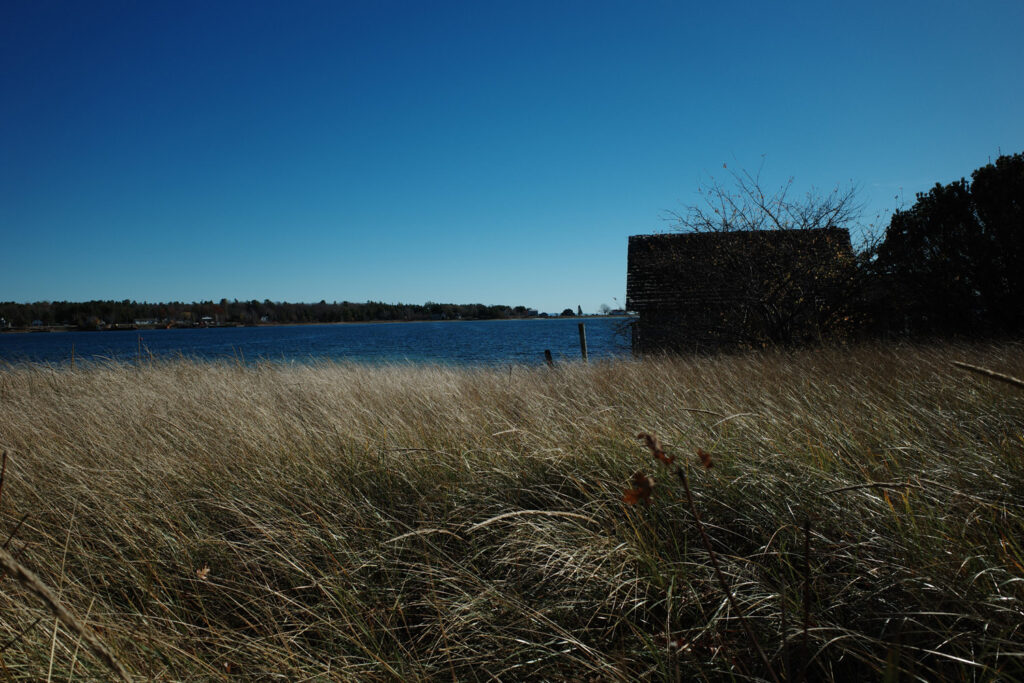
There are a shocking number of old trucks are on the street. Trucks from the 1990s, and even the ’80s, are not uncommon. They never need to drive very far on the island, and they keep these old, rough trucks running far longer than we do on the mainland. In our era of smooth new bubble cars and features, the gritty aesthetic is refreshing. Rough, real, vintage.
There is a silence over the island that’s hard to put into words. The absence of everything busy and everything chaotic. No low hum of the freeway in the distance. No lines. St. James feels more like a little encampment and less like a town. Everything is so still. Little houses sprung up in the woods, boats flipped over near the water, workers quietly digging, a family of ducks swimming out from shore, smoke across the bay coming from a campfire that burns all day.

An ominous kind of wind whips off the water late at night, a reminder that you are surrounded by dark; cold water feels isolating in some strange archaic sense that you can feel but can’t quite say. The blinking red light of the lighthouse flicking away all night tells no one, but the starry night knows that we are here.
The old Beaver Island Harbor Lighthouse stands tall over a rocky beach. On a clear day, you can see a sliver of the mainland from Whiskey Point. The bulging land north of Harbor Springs and south of Mackinaw City appears like an island on the clear horizon.

This silence is religious. There is something spiritual about nature. God’s hand is here. We feel it. It’s obvious why the bay was named Paradise Bay. Standing on the shore in silence, with only the sound of the waves and the wind, I understand why Strang and his zealous devotees sought solace and faith on this desolate, northern island. A place of their own, far away.
O.W. Root is a writer based in Northern Michigan, with a focus on nature, food, style, and culture. Follow him on X @NecktieSalvage.
